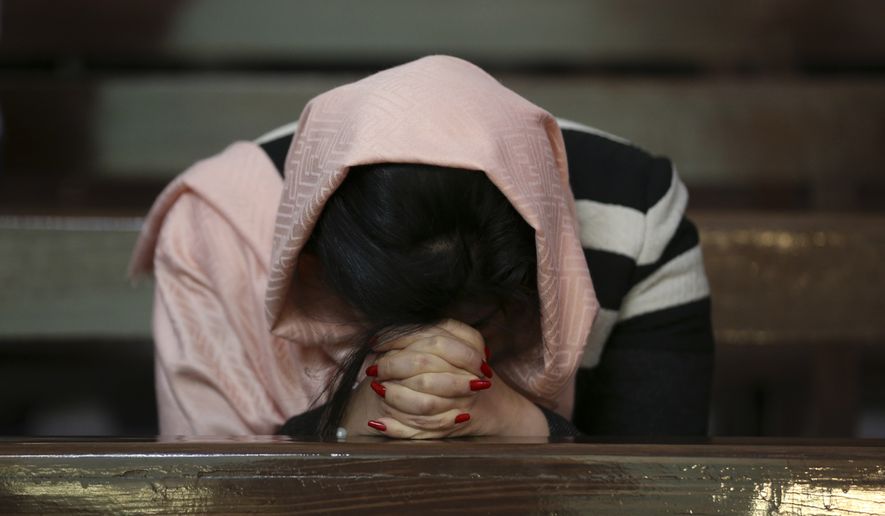OPINION:
Christmas Day has come and gone and once again, the headlines of the holy-day season have been awash with stories of the secular intolerance of Christ’s mass.
Leading this year’s Festivus parade was the University of Minnesota where students and faculty alike at the U of M’s College of Food, Agricultural and Natural Resource Sciences were told that, under the rainbow banner of inclusion, there were certain “inappropriate” colors such as “red and green” that had to be excluded from all school sponsored “winter festival” celebrations.
It seems that in the minds of the school’s administration these colors represented the potentially offensive Christian tradition of, dare we say it: Christmas. The “Religious Diversity and Holidays” memo issued by the college’s dean, Dr. Brian Buhr, went on to list about a dozen additional items deemed verboten; items such as “religious iconography, bows, bells, depictions of Santa Claus, Christmas trees, wrapped gifts, nativity scenes, the star of Bethlehem, dreidels, angels and doves.”
Faculty, staff and students at the U of M were told that they could put up religious decorations “in their own personal space if it did not have a meaningful public function,” but Dean Buhr then made it explicitly clear that the Office of Equal Opportunity and Affirmative Action was available to all who were offended by any “inappropriate religious celebrations” at this oh so proudly inclusive University.
Finally, the memo closed by pointing readers to its “Bias Incident Website” where anyone wishing to lodge a complaint could do so, without any hint of bias against the Christian religion, of course.
In other words, a season that for nearly two millennia has specifically been set aside to celebrate the birth of Jesus Christ could not contain any celebration of the birth of Jesus Christ. Forget etymology. Forget history. Forget logic. Forget common sense. Christmas at the University of Minnesota could only be celebrated if it was Christ-less.
Setting aside the apparent disregard for freshman level Socratic reasoning, it might be interesting to consider this theory of human history and the consequences of living in a world where Christ had not been born. What would life look like today if it weren’t for Christmas; if as Thomas Cahill said, the “ideas and acts” of Christmas had not been “hurled across the centuries and around the world” some 2000 years ago?
Whether you’re a believer in the theology of Christmas or simply an open-minded and honest historian, you must admit the impact of Christmas’ sociology and cosmology on the world. The fact of the matter is that the story of the birth of Christ has dramatically changed humanity’s understanding of life and the way we live it.
From Saul of Tarsus to the Emperor Constantine, from Wilberforce to Whitfield, and from Chesterton to Lewis, millions of lives have been turned from despair and selfishness to compassion and love because of Christmas.
Greek and Roman cultures stopped the practice of child “exposure” because of Christmas. The Celtics and Prussians abandoned human sacrifice because of Christmas. Sexual fidelity and respect for marriage was normalized in the Roman Empire because of Christmas. Women were no longer considered mere property and/or chattel because of Christmas.
Compassion for the sick and the dying during the great plagues of Europe took place because of Christmas. Charity for the poor, for orphans, and for the old became expected during the Industrial Revolution because of Christmas. Hospitals, child labor laws, education, economic freedom, the dignity of labor, civil rights and racial equality all were established because of Christmas. Slavery was abolished and the sanctity of all human life was celebrated because of Christmas.
Christmas changed the world. We are told in the ancient book written by Matthew that “His name shall be called Jesus, for He will save His people from their sins.” A brief look back at history tells us that, indeed, this is so true. Christmas not only saves us from our own sins, but the “ideas and acts” of Christmas have saved us from the sins of millions around us; millions who — prior to the birth of Christ — would have ignored us, used us, oppressed us, enslaved us, or even killed us on the altars of their governments and their gods.
Harry Truman said it well: “Down the ages from the first Christmas through all the years [since], mankind in its weary pilgrimage through the changing world has been strengthened by the message of Christmas The religion which came to the world heralded by the song of the angels remains today the world’s best hope “
In the words of Charles Dickens’ Tiny Tim, “A Merry Christmas to us all; God bless us, every one!”
• Everett Piper, president of Oklahoma Wesleyan University, is the author of “Not A Day Care: The Devastating Consequences of Abandoning Truth” (Regnery 2017).




Please read our comment policy before commenting.